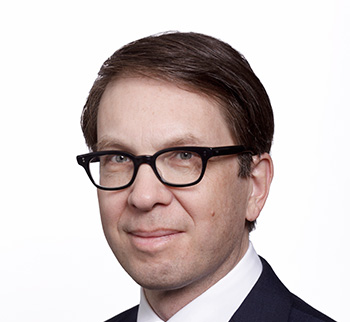In 1905, a poor Jewish carpenter from Belarus named Jacob Axelrode settled with his family in the north end of Winnipeg. A few years later, a Jewish farmer named Yehuda Moishe Henteleff and his family arrived in St. Anne, Man., from Chernigov, Ukraine. These two individuals were my mother’s maternal grandfather and paternal great-grandfather, respectively. They fled czarist Russia because of issues of human rights.
My father, Leslie Dan, immigrated to Toronto in 1947 from postwar Hungary having narrowly escaped the darkest hours in the entire history of human rights violations.
Human rights violations and abuses have literally driven my family from one continent to another over the generations, but the life I knew as a child, growing up in Toronto in the 1960s, was free of anti-Semitism. For my family, Canada has always been a country filled with optimism and opportunity, a country where past ethnic conflicts get checked at the front door and children from all backgrounds mix freely and integrate.
So how does one go about thanking one’s country for a century of peace and prosperity, for the absence of racism or persecution, for providing the very soil in which a family can plant seeds and flourish? In the great tradition of my eastern European ancestors, we are compelled to express our love and gratitude through the vehicle of criticism. Anyone with a Jewish mother understands this concept very well.
We all know that Canada is a great country, but it can be even better. The Canadian dream will not be fulfilled until it’s available to all Canadians. This includes the people who were here before Canada was Canada.
Let’s acknowledge that before the arrival of Europeans in Canada, this country was filled with people who were entirely self-sufficient and self-governing, and that today, most of their descendants are living in poverty and despair, much to the indifference of many Canadians.
Let’s acknowledge that although no level of anti-Semitism is acceptable in Canada or anywhere else, the psychological abuse, physical abuse, disappearance, and even murder of aboriginal women poses a much greater problem (at least in this country), much to the indifference of many Canadians.
It was the Haudenosaunee (also known as the Iroquois) who developed the first representational democracy in the world, who were the first to give women the vote, and whose form of government inspired the American Constitution. Those ideas, in turn, crossed the Atlantic from west to east, and inspired the French Revolution. The French translated them into three famous words: liberté, egalité, fraternité.

The Candian Museum for Human Rights in Winnipeg TOBY SALTZMAN photo
Fraternité, in the French sense of the word, means brotherhood, from the Latin root frater. And whereas Canada is now one of the most successful multicultural societies in the world, historical relations between Canada and its Aboriginal Peoples were hardly the example of fraternité.
Under the paternalistic Indian Act, aboriginal Canadians suffered, and continue to suffer, the effects of land and resource expropriation, forced assimilation, economic isolation, and cultural genocide. This has resulted in intergenerational traumas and pathology that is only now being addressed on a national level.
The Canadian Museum for Human Rights in Winnipeg is unlike any other museum in the country. The real artifacts you will find there are not the pieces of yellow cloth, cut in the shape of a Jewish star, but the idea that forcing people of Jewish ancestry to wear yellow stars was somehow acceptable.
Similarly, Canada’s residential schools and the apprehension of First Nations children from their families that took place in the 1960s are not the real artifacts of history. It is the idea that all of this would lead to the betterment of aboriginal Canadians that is the true artifact of misguided paternalistic thinking.
In a country that five centuries on is only now beginning to digest and internalize the aboriginal version of the story of colonialism, it’s time that we had a sacred national space where true reconciliation and healing between Aboriginal Canadians and newcomers can occur. My greatest hope for the Canadian Museum for Human Rights is that it will become such a space.
Michael Dan, a former neurosurgeon, has worked in partnership with First Nations as president and CEO of Gemini Power Corp. to help develop sustainable economies on aboriginal reserves. His donation of more than $1 million helped make the ceremonial terrace in the Canadian Museum for Human Rights’ Indigenous Perspectives gallery a reality.
